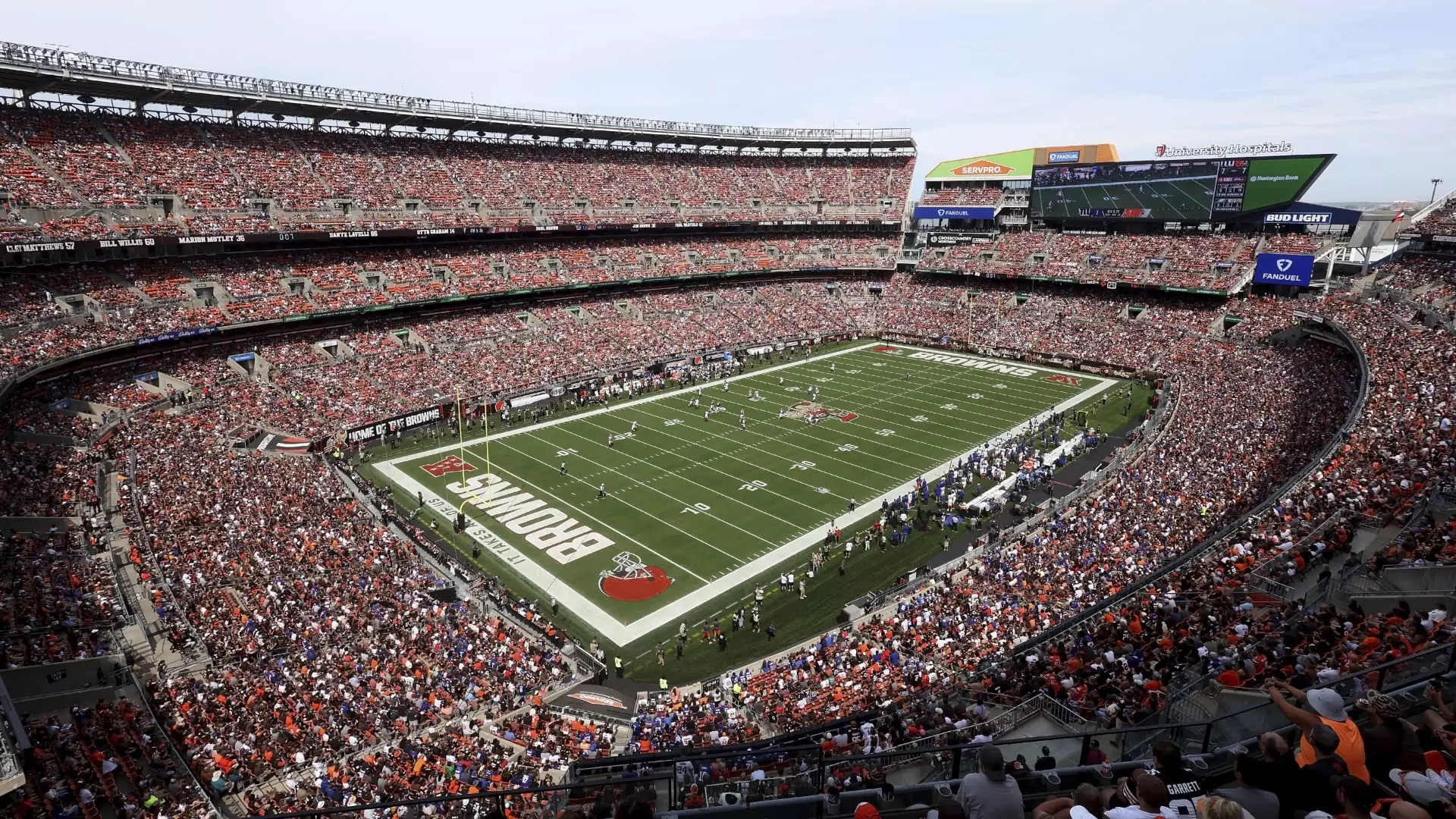The Cleveland Browns’ recent announcement to relocate from their Lake Erie home to a future domed stadium in Brook Park, Ohio, has sparked significant debate and concern within the community. The decision, announced by Cleveland Mayor Justin Bibb and later confirmed by the team’s ownership, raises important questions about the implications for Cleveland and the motivations of the Haslams, the Browns’ owners.
The Haslams described the need for a new, domed stadium as integral to their vision of promoting year-round activities. According to Mayor Bibb’s sharp critique, however, the move seems largely driven by a profit-maximization agenda rather than a genuine commitment to the city. Bills for operating and maintaining an open-air venue have become profoundly burdensome, prompting many NFL teams to contemplate indoor facilities that can accommodate various events beyond football. The economics of such a choice were underscored dramatically when it was disclosed that non-football events could generate revenue far exceeding that of typical game-day sales; for example, one NFL venue reportedly made a staggering $4 million per Taylor Swift concert.
Cleveland stands to lose an estimated $30 million annually due to the Browns relocating, a figure that signifies not only the financial loss but also a deep-rooted cultural void. Home games foster a sense of communal spirit and pride, traits that will inevitably diminish as the team sets up shop miles away. By choosing Brook Park, which is over 16 miles from the current stadium, the Browns are effectively distancing themselves from a city that has supported them through thick and thin.
The discussions surrounding potential renovations to the existing stadium reveal another layer of this complex situation. Bibb indicated that multiple viable options were offered to the Haslams to modernize the current stadium into a world-class facility. Instead of investing in the local infrastructure and fan experience, the Browns opted for a shiny new facility that promises to attract diverse revenue streams but forfeits a rich history and connection with the city’s residents.
Indeed, this decision appears to reduce a historic franchise to a transactional venture, a stark departure from the ethos that once defined the organization’s relationship with the community. Bibb’s remarks emphasized the possibility of loss—a cherished sports team, a cultural legacy, and an economic lifeline all hanging in the balance. The contrast between the opportunity to revitalize a landmark establishment and the choice to create a new one might come to symbolize the broader struggles between profit-driven motives and community-centric decisions that plague major sports franchises today.
Despite the disappointment, Mayor Bibb stated that Cleveland remains open to discussion should the Brook Park initiative falter. The flexibility to re-engage could potentially pave the way for negotiated solutions that reconcile the interests of the team with the sentiments of the community. Nevertheless, it poses a critical question: how far can ownership support economic development while ignoring the intrinsic value of loyalty, legacy, and local roots?
The Browns’ pivot to Brook Park not only exemplifies a shift in geographical location but also in values. The entire scenario illuminates a fundamental tension within professional sports today—the struggle between corporate growth and authentic community engagement. As the city braces for what lies ahead, one can’t help but wonder: will this move ultimately benefit the Browns as a franchise, or will it deepen the rift between the team and its most loyal supporters?
As the franchise prepares to write its next chapter, local fans and stakeholders remain hopeful that the bonds of loyalty can withstand this transition. The true test will be whether the Browns can leverage their new venue into a vibrant community hub that embodies the spirit of Cleveland, or whether this decision marks the beginning of a disconnection that could haunt the team for years to come. The outcome will depend on how the Haslams choose to navigate this complex landscape—balancing the pursuit of profits against the invaluable heritage they stand to lose.


Leave a Reply